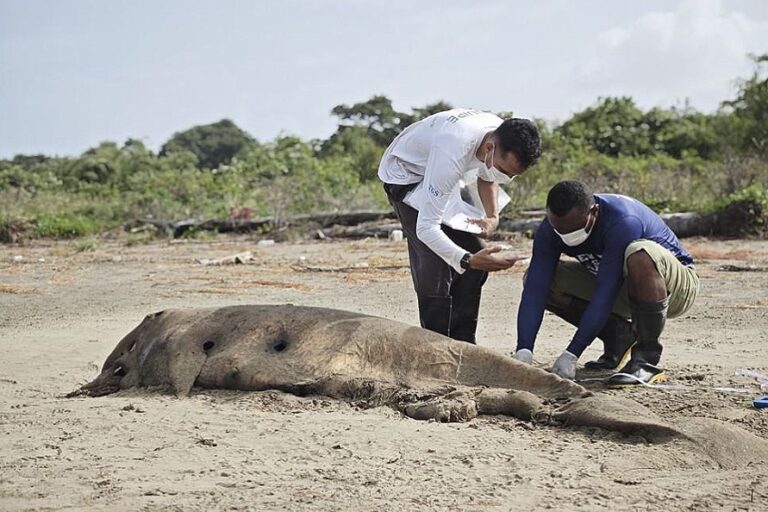OIAPOQUE, Brazil — At the northernmost tip of Brazil, where the Amazon spills into the Atlantic, a fragile web of estuaries, mangroves, submerged reefs and open sea is showing signs of distress. Here, where biodiversity has long flourished, something is shifting. The seismic airguns used by the oil industry to locate underwater oil reserves are disrupting marine life. The appearance of rare fish and stranded marine mammals is evidence that a silent, serious transformation is underway. Julio Garcia, a fisherman for 45 years and president of a fishing colony, knows these waters intimately. It is here, in the municipality of Oiapoque, where the Amazon says farewell to dry land, that he has spent his life fishing, attuned to every shift in the wind and every lull in the tides. But something has changed. “The sea is sick,” Garcia says. And with it, so, too, is the way of life for riverside and Indigenous communities that rely on artisanal fishing for survival. Dolphins, porpoises, migratory whales, fish, mollusks, crustaceans and corals — many still unknown by scientists — share this embattled territory where nature, culture and subsistence are deeply intertwined. The fish caught in these silty waters supply local markets, urban centers like Macapá and even distant parts of the country. Yet this ecosystem, a living bridge between biomes, cultures and livelihoods, now faces mounting risk. The threat comes from multiple fronts, but none more contentious than oil exploration. Petrobras began 3D seismic surveys close to the Amazon River coast in…This article was originally published on Mongabay
Search
Recent Research
Want your Blog Article featured on our website?
Research
Featured News
COP30: Firm to connect institutions with international climate finance opportunities
SISTME, a climate change and biodiversity conservation consulting firm based in Argentina, has offered to
From resistance to planetary governance, Indigenous women redefine global climate action
While world leaders negotiate behind closed doors in the Blue Zone of COP30, Indigenous Women
Sahara Group Foundation launches 16th Sahara Go Recycling Hub to boost environmental sustainability, economic empowerment
Sahara Group Foundation, the corporate social impact arm of Sahara Group, has commissioned its 16th
Climate finance is the lifeblood of climate action – Simon Stiell at COP30
Remarks delivered by UN Climate Change Executive Secretary, Simon Stiell, at the third High-Level Ministerial
UNDP, REA, GEF commission Plateau solar mini-grid to power agricultural value chains, empower rural communities
The United Nations Development Programme (UNDP), in partnership with the Rural Electrification Agency (REA) and
COP30: Africa urges world leaders to turn pledges into action
Africa has called on the world leaders to turn their pledges into action regarding the
Thousands join global marches calling on govts at COP30 to deliver climate justice
An estimated 30,000 people marched through the Brazilian city of Belém on Saturday, November 15,
Week in wildlife: a ferocious wildcat, a cheeky seal and a disgruntled lioness
The best of this week’s wildlife photographs from around the world Continue reading...


